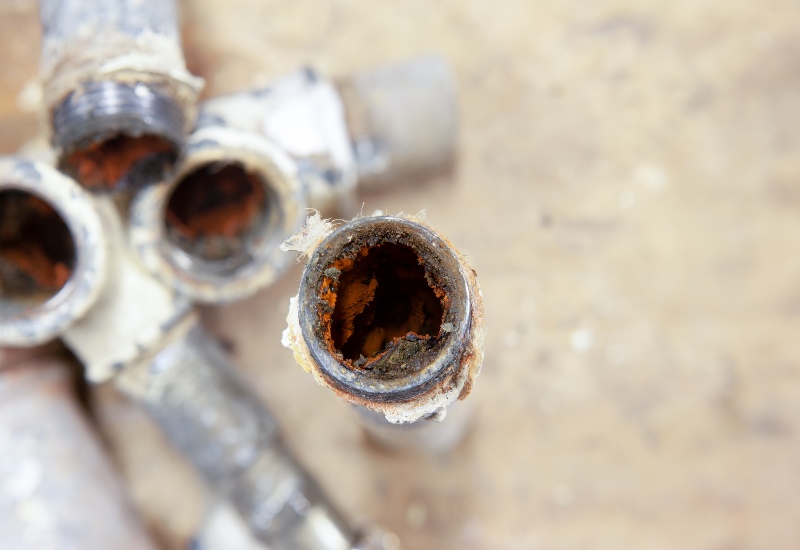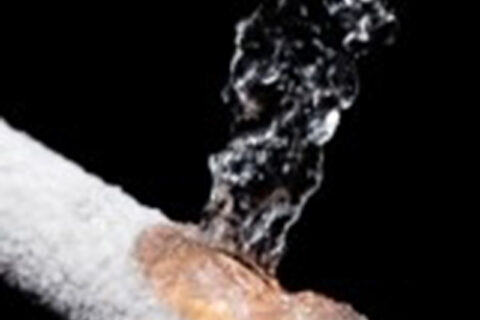10 Signs Pipe Corrosion Is Becoming a Problem in Your Home
10 Signs of Pipe Corrosion
Pipe corrosion is a common concern that often goes unnoticed—until your floor is soaked. The trick is to recognize the warning signs, so you can prevent minor corrosion from escalating into a full-blown plumbing disaster. Here are 10 indicators that pipe corrosion is becoming a problem.
- Discolored water: Rusty-looking water is a major red flag. Yellow, brown, or reddish hues are telltale signs of pipe corrosion. You might also see green or blue shades if you have corroded copper lines.
- Strange taste or smell: A strong metallic taste to your water signals that metal is leaching from your pipes. This happens when corrosion breaks down the inner surface of aging plumbing.
- Low or fluctuating water pressure: When pressure weakens for no apparent reason, you could be dealing with internal buildup from pipe corrosion. This restricts flow and makes showers and sinks sluggish.
- Water leaks: Frequent leaks often result from corrosion weakening the pipe walls. Even small leaks can indicate serious underlying damage, especially with pipes made of cast iron or galvanized steel.
- Rising water bills: Unless you stumble upon water damage, the first sign of leaks caused by corrosion is often an increase in your utility bill. If your usage habits haven’t changed, but your charges have, hidden pipe damage could be wasting water.
- Visible rust or flaky deposits: Rust spots, flaking, or bubbling on the outside of pipes indicate that corrosion is taking hold. Don’t ignore what you see—the damage is probably worse on the inside.
- Unusual noises: Clanking, banging, or gurgling sounds coming from your plumbing may indicate internal buildup from corrosion. These noises often indicate that water isn’t flowing the way it should.
- Foul odors: When sewer pipes corrode, sewer gases or bacteria can escape, resulting in unpleasant smells. If you detect something foul-smelling near your sinks or in the basement, corrosion could be to blame.
- Hard water in your area: Hard water pipe corrosion happens more quickly due to accelerated mineral buildup. Calcium and magnesium deposits cling to the inside of your pipes, creating a perfect environment for corrosion to occur.
- Cast iron pipes in older homes: Cast iron pipe corrosion is a common issue in homes built before the 1970s. These pipes corrode from the inside out, often going unnoticed until blockages or major leaks develop.

Pipe corrosion doesn’t fix itself. If you see any of these signs, act quickly to save money, water, and stress. The best thing you can do is call Expert Plumbing Service to perform a professional inspection, routine maintenance, or timely pipe replacement, if necessary.
We’ve been helping homeowners and businesses across DuPage, Will, Kendall, and Kane Counties for over 30 years. Our full-service, family-owned company is licensed, certified, and known for our fast, dependable work. We offer 24/7 emergency response in case you spot the signs of pipe corrosion in the middle of the night, and we arrive in fully stocked trucks to fix the problem on the spot. Call us today to keep pipe corrosion from wrecking your home!
Request Your Expert Plumbing Service Today


